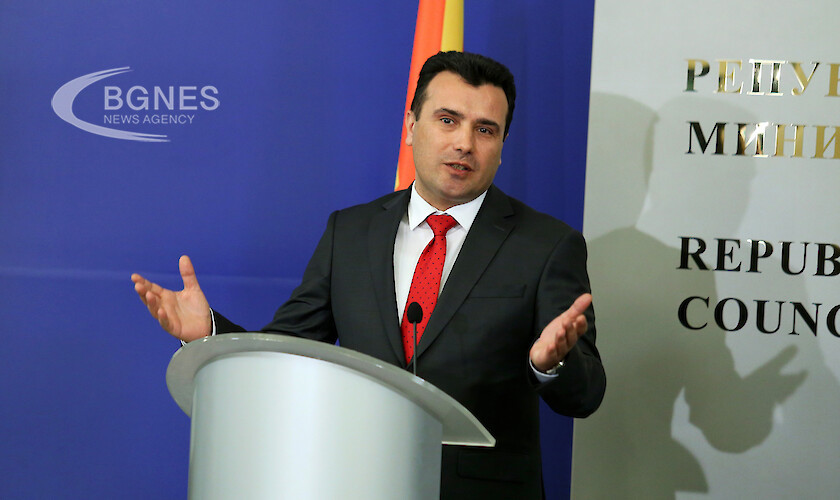Zaev: The problems with Sofia are not substantial, we expect help for them from USA
The problems between Sofia and Skopje are not substantial and for the resolve of the standoff North Macedonia expect help from the most powerful Western governments, including President Joe Biden’s new U.S. administration.

This was stated by Macedonian Prime Minister Zoran Zaev in an interview for Politico.
Zaev also dismissed an idea floated by European Enlargement Commissioner Olivér Várhelyi of moving ahead with membership talks for Albania while keeping North Macedonia on hold.
Zaev noted that the heads of the European institutions, as well as multiple EU member states, clearly stated in recent days that both countries should go forward together. Germany, Slovakia and Greece are among those to have made clear they do not share the Hungarian commissioner’s views.
“There is a clear message of no decoupling and I hope that Bulgaria will be reasonable”, Zaev said.
He expressed optimism that an end to the stalemate with Bulgaria could be found, describing the problems between Sofia and Skopje as “not substantial.”
"On our side, we hope that also the most powerful Western governments, including the new administration of President Joe Biden, will help resolve the conflict," he said.
If there is no breakthrough, he warned, the enlargement process will be frozen for at least a year and a half, while elections take place in Bulgaria and in big EU powers Germany and France.
That would be a further bitter blow for North Macedonia, which has gone to considerable lengths to secure membership of major Western political organizations — even changing its name from Macedonia to end to a decades-long dispute with neighboring Greece. That change allowed the country to join NATO but the EU has yet to meet its pledge on membership talks.
“So many sacrifices. And after that the EU doesn’t deliver? That is a problem. We show more European values and European manners than the EU,” Zaev said in the interview, conducted when he visited Athens last week at the end of a European diplomatic tour.
He said the EU was "damaging the Balkans reputation" and would lose even more ground against rival forces if it does not start membership talks with his country and Albania soon.
EU frustration in the region is compounded by the bloc's lag in providing coronavirus vaccines to its Balkan neighbors, prompting them to turn to Russia and China for vaccines, he added.
Zaev said a failure to start talks would affect not just his country and Albania but also the wider Western Balkan region, which is now surrounded by EU members and was the scene of a series of wars in the 1990s as Yugoslavia was torn apart.
If the EU is not seen to keep its promises in the region, that would also give Kosovo and Serbia less incentive to resolve their differences in EU-sponsored talks and make it less likely Bosnia and Herzegovina will tackle the reforms necessary to seek its own membership negotiations, he argued.
And if the region’s journey toward the EU slows down, Zaev said, “there is more space” for other powers, citing Russia and China in particular.
Zaev noted Serbian President Aleksandar Vučić’s greater distance to the EU and NATO gave him flexibility to act faster. Vučić swiftly reached out to both Russia and China for vaccines and his country raced ahead of its neighbors — and much of Europe — in its vaccination rollout.
Despite all the setbacks, Zaev said he is optimistic the EU can quickly recover lost ground — if it starts membership talks soon.
“The disappointment that appeared in the last five to six months can be recovered with a strong message of enlargement for those countries who deserve it, and North Macedonia and Albania really deserve to make the next step,” he said. /BGNES




